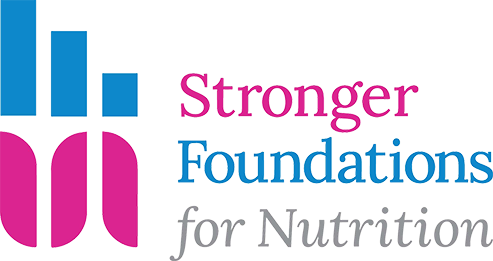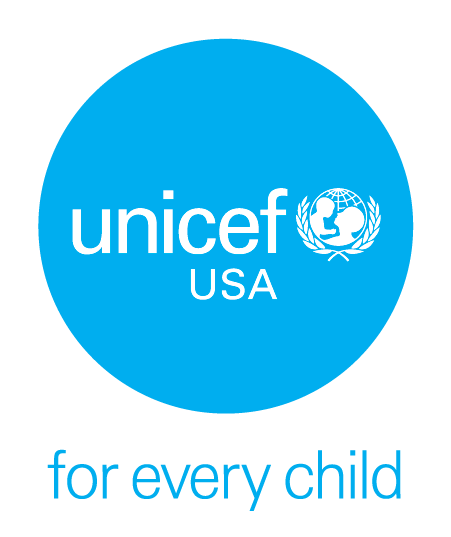The Nutrition CEO Council is led by volunteers who care about ending the crisis of malnutrition in all its forms. Council leadership acts as a secretariat and guiding body, developing agendas and action plans that Council Members review and make decisions around.
Terms of Reference
Meeting an Urgent Need
In response to dramatic evidence:
- The nutrition crisis exacerbated by conflict, climate shocks, and economic crises has reversed a decade of progress on nutrition and created a more urgent situation. A 2023 UNICEF report estimates that more than 1 billion adolescent girls and women around the world suffer from undernutrition, lack of vital nutrients and anemia.
- Studies consistently rank nutrition interventions as among the most cost-effective ways to save and improve lives around the world with every $1 invested yielding up to $35 in returns; and show that investments in nutrition would dramatically boost economies, improve cognitive development, and increase lifetime earnings, which bolsters overall U.S. government foreign assistance and programming.
- Opportunities to elevate nutrition presented by the Biden Administration’s commitments to engaging the global community, the passage of the Global Malnutrition Prevention and Treatment Act, and bipartisan support for nutrition in annual appropriations.
The Nutrition CEO Council acknowledges that the global nutrition situation is dire. We know that expertise exists, and has been tested, that could address global malnutrition and that it is right and appropriate to take action to encourage and support the U.S. government, civil society, corporations, and other stakeholders to make that expertise into law and policy.
The Council’s focus is global nutrition. The Council’s objectives are:
- To inspire increased support for nutrition from U.S. political leadership through high-level engagement.
- To advance civil society advocacy, commitment, and support for nutrition as a foundational part of all development success.
Learn more about the Council’s priorities here.
Membership
CEOs will be primary members, supported by a staff coordination group who moves the policy agenda forward through specific action items.
- Nutrition CEO Council Leadership. Council Leadership will act as a secretariat and guiding body, developing agendas, and action plans for Council Member review and decisions. They support and advocate for the policy asks determined by the Council. The leadership team includes:
- Rev. Eugene Cho, President and CEO, Bread for the World (co-chair)
- Dr. Joanne Carter, Executive Director, RESULTS/RESULTS Educational Fund (co-chair)
- Sarah Bouchie, President and CEO, Helen Keller International
- Solianna Meaza, Interim Director, 1,000 Days of FHI 360
- Eric Mitchell, President, Alliance to End Hunger
- Michelle Nunn, President and CEO of CARE USA
- Charles Owubah, CEO, Action Against Hunger
- Nutrition CEO Council. The Council reviews and provides input into action plans brought forward by Council Leadership, deciding when and how to commit their organizations. They support the policy asks and advocate for them in the activities decided by the Council.
- Membership is open to CEOs of non-governmental and philanthropic organizations committed to addressing malnutrition. Members include:
- Arun Baral, CEO, Harvest Plus
- Sarah Bouchie, President and CEO, Helen Keller International
- Dr. Joanne Carter, Executive Director, RESULTS/RESULTS Educational Fund
- Rev. Eugene Cho, President and CEO, Bread for the World
- Matt Freeman, Executive Director, Stronger Foundations
- Eric Mitchell, President, Alliance to End Hunger
- Michelle Nunn, President and CEO, CARE
- Michael J. Nyenhuis, President and CEO, UNICEF USA
- Saskia Osendarp, Executive Director, Micronutrient Forum
- Charles Owubah, CEO, Action Against Hunger
- Carrie Hessler-Radelet, President and CEO, Global Communities
- Tessie San Martin, CEO, FHI 360
- Solianna Meaza, Interim Director, 1,000 Days of FHI 360
- Janti Soeripto, President and CEO, Save the Children US
- Joel Spicer, President and CEO, Nutrition International
- Mark Viso, President and CEO, Food for the Hungry
Interested in joining the Council? Please complete this form and someone from the leadership team will be in touch with you.
ADDENDUM: Council Activities
The following actions are planned or should be planned for Council attention.
- Direct engagement with Congress and Administration, including but not limited to:
- USAID Administrator Samantha Power
- Secretary of State Tony Blinken
- NSC Senior Director for Global Health and International Development Linda Etim
- UN Ambassador Linda Thomas Greenfield
- Public Events, including but not limited to:
- October 12 – Nourish the Future launch event, co-hosted by Eleanor Crook Foundation, Helen Keller International, RESULTS, CARE USA, 1000 Days, and Bread for the World.
- October 20 – Global nutrition event at the World Food Prize’s Borlaug Dialogues, co-hosted by Bread for the World, the Alliance to End Hunger, and 1,000 Days
- TBD during December 7-8 – Event to celebrate US Government Leadership and nutrition commitment at Nutrition for Growth
- TBD during cember 7-8 – Event to celebrate civil society commitments on nutrition at Nutrition for Growth
- Op-eds, blogs, press, and other media, including but not limited to:
- Public action around World Food Day
- Joint media strategy around Thanksgiving to raise the profile of nutrition in a final push for Administration action before Nutrition For Growth
- Announce individual NGO investments and commitments to combating malnutrition to inspire and motivate US leadership and partnership
- Publish Op-eds on the importance of nutrition investments and Nourish the Future
- Sign-on letters, including but not limited to:
- Sign on to a CEO statement on nutrition, the basis of which is above, to align as much of the community as possible around a Nutrition for Growth ask
- Sign on letters to President Biden and key Congressional Committees on the importance of nutrition
- FY22 and FY23 Appropriations letters
- Direct engagement with other country actors to:
- Secure developing country buy-in, of the countries mentioned in Nourish the Future
- Connect with other government plans, such as those in development with the UK and Canada.
















